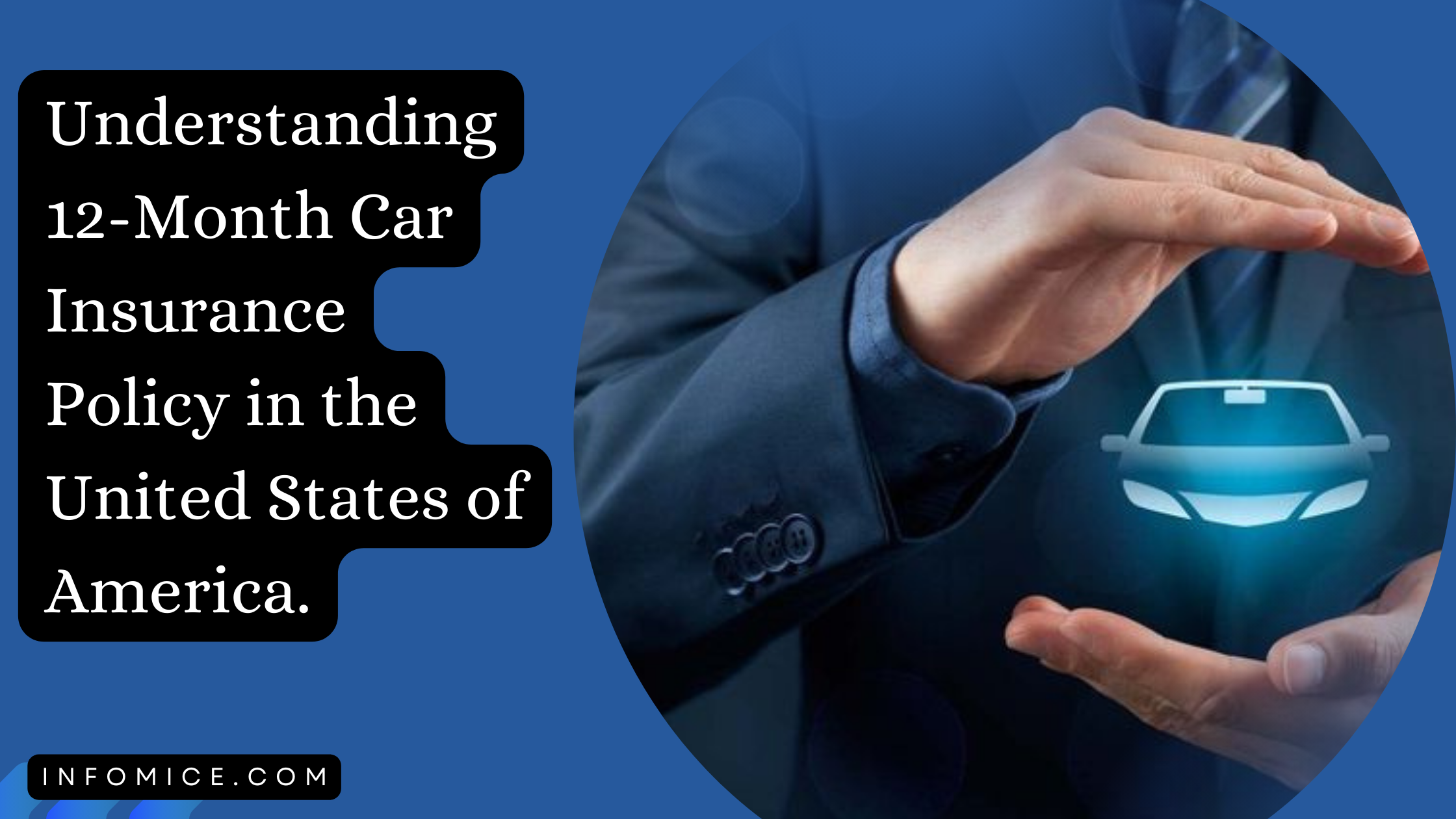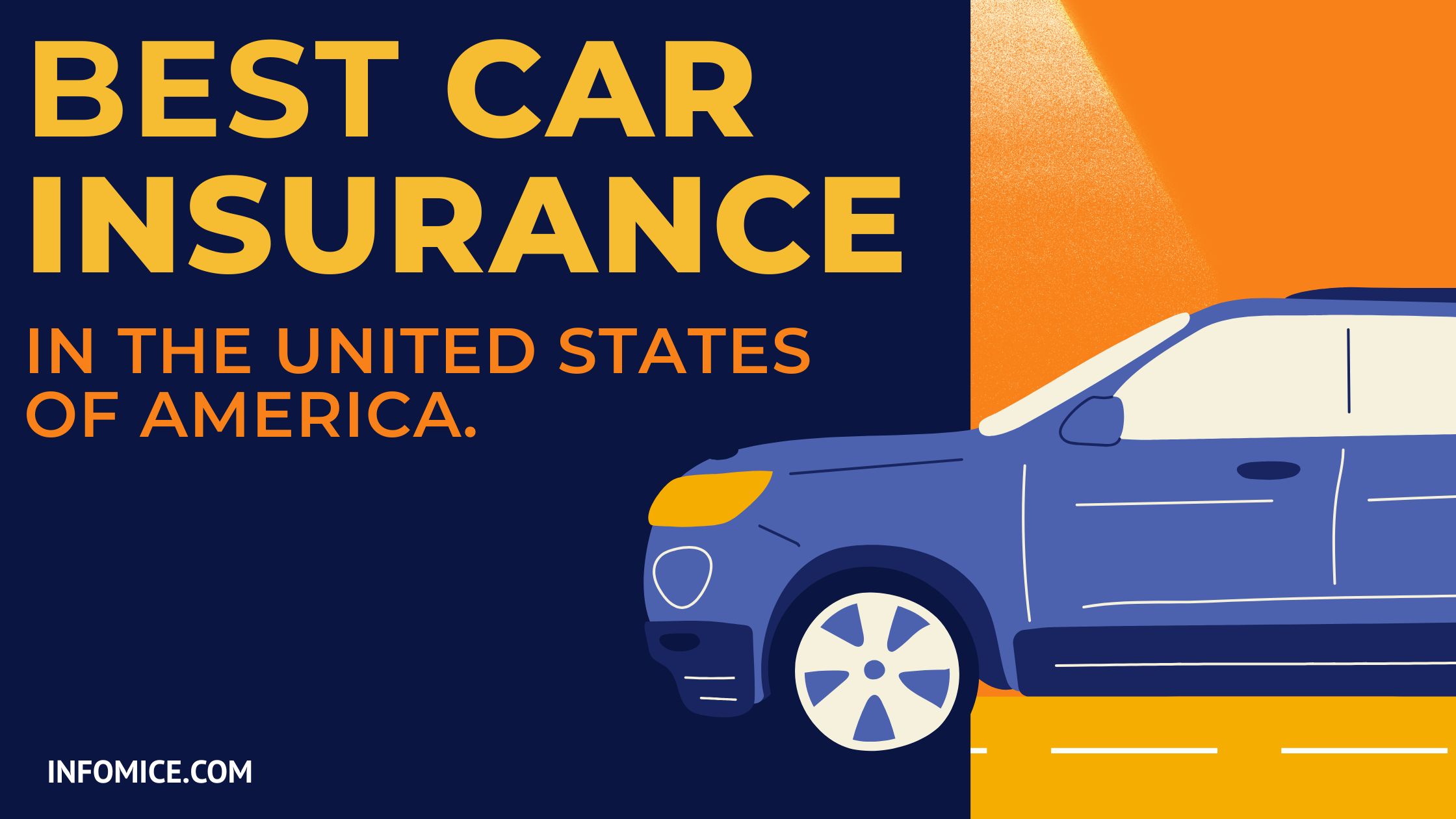
Introduction
Car insurance is an essential part of vehicle ownership in the United States. It offers financial protection against accidents, theft, and other unforeseen events. Among various options, a 12-month car insurance policy is particularly popular due to its balance of stability and convenience. But what does a 12-month car insurance policy entail, and why should you consider it? Let’s delve into the details.
What is a 12-month Car Insurance Policy?
A 12-month car insurance policy is a contract between you and the insurance company that provides coverage for one full year. Unlike shorter-term policies, a 12-month policy offers stability in premiums and coverage.
Benefits of a 12-Month Car Insurance Policy
- Stability in Premiums: A 12-month policy locks in your premium rates for a year, shielding you from potential rate increases that could occur with shorter-term policies.
- Convenience of Fewer Renewals: Since the policy is for a year, you only have to renew once annually, making it more convenient.
- Potential for Discounts: Insurers often provide better rates or discounts for longer-term commitments, helping you save money over time.
Drawbacks of a 12-Month Car Insurance Policy
- Less Flexibility: If your circumstances change, such as moving to a different state or selling your car, a 12-month policy might be less adaptable than a shorter-term policy.
- Higher Upfront Cost: Paying for a year’s worth of coverage at once can be more financially demanding than monthly payments.
Types of Car Insurance Coverage
- Liability Coverage: This covers damages to others if you are at fault in an accident, including bodily injury and property damage.
- Collision Coverage: Pays for damage to your car resulting from a collision with another vehicle or object.
- Comprehensive Coverage: Covers non-collision-related incidents such as theft, vandalism, or natural disasters.
- Personal Injury Protection (PIP): Covers medical expenses for you and your passengers regardless of fault.
- Uninsured/Underinsured Motorist Coverage: Protects you if you’re involved in an accident with a driver who has insufficient or no insurance.
Factors Affecting Car Insurance Premiums
Several factors influence the cost of your car insurance premiums:
- Driver’s Age and Experience: Younger and less experienced drivers typically pay higher premiums.
- Vehicle Make and Model: High-performance or luxury cars often cost more to insure.
- Driving Record: A history of accidents or traffic violations can increase your premium.
- Location: Urban areas with higher traffic and crime rates usually have higher premiums.
- Credit Score: A good credit score can lead to lower insurance premiums.

Choosing the Right Car Insurance Policy
When selecting a car insurance policy, consider the following:
- Assess Your Needs: Determine the type and amount of coverage you need based on your vehicle, driving habits, and personal circumstances.
- Compare Quotes: Shop around and compare quotes from different insurers to find the best rate.
- Read the Fine Print: Understand the details of what your policy covers and any exclusions.
- Customer Service and Reviews: Check the insurer’s reputation for customer service and claims processing.
Getting a 12-Month Car Insurance Policy
- Application Process: Complete an application online or with an agent, providing necessary information about your vehicle and driving history.
- Required Documents: Typically, you’ll need your driver’s license, vehicle registration, and details of any prior insurance.
- Policy Activation: Your coverage will begin once your application is approved.
Cost of a 12-Month Car Insurance Policy
- Average Costs: The cost varies widely based on factors like age, location, and vehicle type. On average, expect to pay between $1,200 and $1,800 annually.
- Ways to Save Money: Look for discounts such as safe driver, multi-policy, or good student discounts.
- Discounts and Deals: Many insurers offer promotional rates or discounts for new customers or those who pay annually.
Renewing a 12-Month Car Insurance Policy
- Renewal Process: Review your policy before it expires to ensure it still meets your needs. Most insurers will send a renewal notice well in advance.
- Things to Check Before Renewing: Verify that your coverage is adequate and update any changes in your circumstances.
- Negotiating for Better Rates: Don’t be afraid to negotiate or shop around for better rates at renewal time.
Common Mistakes to Avoid with Car Insurance
- Underinsuring Your Vehicle: Ensure you have sufficient coverage to protect your assets.
- Not Updating Your Policy: Inform your insurer of any significant changes, such as a new address or a new vehicle.
- Ignoring Discounts: Always ask about available discounts that you might qualify for.
Legal Requirements for Car Insurance in the USA
- Minimum Coverage Requirements: Each state has its own minimum insurance requirements, so ensure you meet your state’s regulations.
- State-Specific Regulations: Be aware of specific laws in your state regarding car insurance to stay compliant.
Impact of Accidents on Car Insurance
- Filing a Claim: Know the process and required documentation for filing a claim with your insurer.
- How Accidents Affect Premiums: Your premiums may increase after an at-fault accident, but some insurers offer accident forgiveness programs.
- Accident Forgiveness Programs: These programs prevent your premium from increasing after your first at-fault accident.
Myths About Car Insurance
- Common Misconceptions: For example, “Red cars cost more to insure.” Insurance rates are based on statistical data, not car color.
- Truths Behind the Myths: Educate yourself on what truly affects your premiums.
Future Trends in Car Insurance
- Technological Advancements: Telematics and usage-based insurance are becoming more popular, providing personalized premiums based on driving behavior.
- Usage-Based Insurance: Pay-as-you-drive models offer savings for infrequent drivers.
- Autonomous Vehicles: As self-driving cars become more common, insurance models will continue to evolve.
Conclusion
Understanding a 12-month car insurance policy in the USA is crucial for making informed decisions about your vehicle coverage. With the right knowledge, you can choose a policy that offers both the protection you need and the financial benefits you seek. Remember to regularly review your policy, take advantage of discounts, and stay informed about changing regulations and trends in the insurance industry.


Your style is so unique compared to ther peopple I have read stuff from.
Many thanks for posting when you’ve got the opportunity, Guess I’ll
just book mark this web site. https://Zeleniymis.COM.Ua/
Your style is sso uniaue compared to other people I have reaad stfuff
from. Manyy thanks for posting when you’ve got the opportunity, Guess I’ll just bopk mark this web site. https://Zeleniymis.COM.Ua/